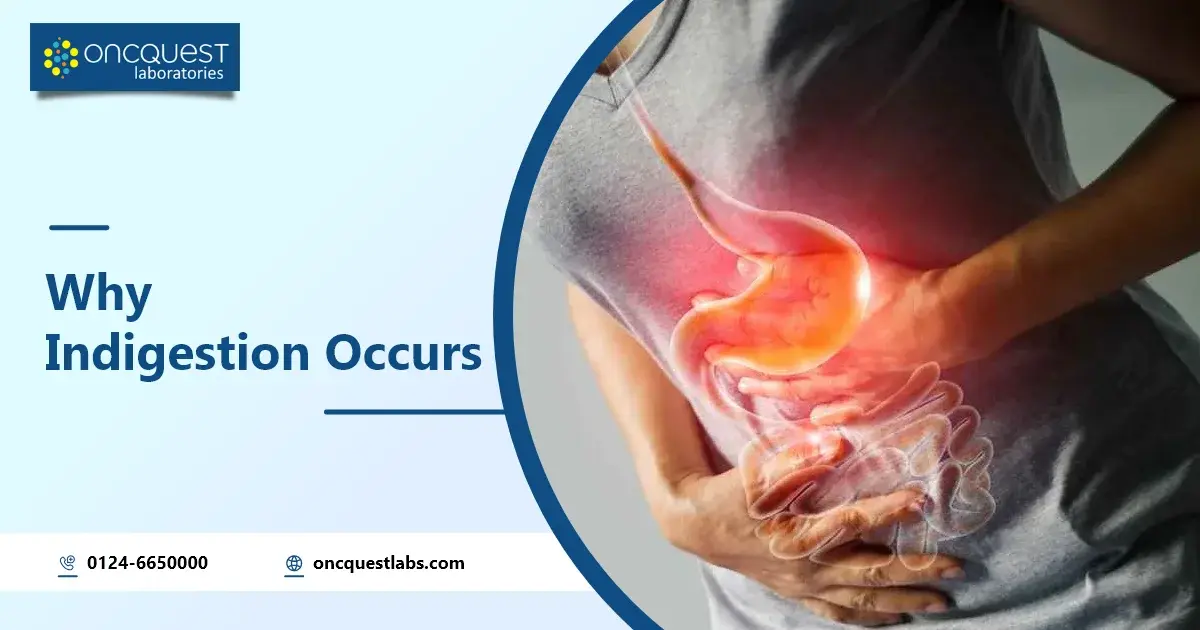Have you ever felt that uncomfortable sensation in your stomach after a hearty meal? That bloated or burning feeling that seems to linger? Chances are, you’ve experienced indigestion. But what exactly is indigestion, and why does it happen? In this blog post, we’ll unravel the mysteries of indigestion in simple terms, exploring the factors that contribute to this common digestive issue. So, grab a seat and join us on a journey to demystify the workings of your stomach!
Contents
What is indigestion
Indigestion is like a tummy ache after eating. It happens if you eat a lot or too quickly, or if you have certain foods. Stress or spicy foods can also be troublemakers. It’s basically your stomach telling you, “Whoa, that was a bit too heavy for me to handle!” So, it’s like a little reminder to go easy on the stomach sometimes.
Prevention from indigestion
Preventing indigestion is like giving your stomach a helping hand. Here are simple tips:
- Eat Slowly: Chew your food well and take your time. Eating too quickly can upset your stomach.
- Smaller Meals: Have smaller, more frequent meals instead of large ones. This makes digestion easier for your stomach.
- Watch What You Eat: Be mindful of spicy, greasy, or very rich foods. They can be harder to digest, so enjoy them in moderation.
- Stay Upright: After eating, stay upright for a bit. Avoid lying down immediately, as it can help prevent stomach discomfort.
- Manage Stress: Stress can mess with your digestion. Try relaxation techniques like deep breathing or gentle exercise to keep stress at bay.
- Limit Caffeine and Alcohol: Too much caffeine or alcohol can trigger indigestion, so it’s good to keep an eye on your intake.
Remember, these are general tips, and it’s always a good idea to consult with a healthcare professional for personalized advice.
How To Cure Indigestion Naturally
Natural remedies can often help alleviate indigestion. Here are some simple suggestions:
- Ginger Tea: Ginger has natural anti-inflammatory properties. Try sipping on ginger tea to calm your stomach.
- Peppermint Oil: Peppermint oil, in small amounts, might ease indigestion. You can add a drop or two to a glass of water.
- Chamomile Tea: Chamomile is known for its soothing properties. A cup of chamomile tea can help relax your stomach.
- Baking Soda and Water: A teaspoon of baking soda mixed in a glass of water can neutralize stomach acid. However, use this sparingly, as excessive use can have side effects.
- Apple Cider Vinegar: A tablespoon of apple cider vinegar diluted in water before meals might aid digestion.
- Probiotics: Foods rich in probiotics, like yogurt or kefir, can promote a healthy balance of gut bacteria.
Remember, what works can vary from person to person. If symptoms persist or worsen, it’s crucial to consult with a healthcare professional for personalized advice.
When To Consult Doctor
If you experience persistent or severe indigestion, it’s a good idea to consult a doctor. Here are signs that it might be time to seek medical advice:
- Frequent or Severe Symptoms: If you frequently have strong or long-lasting indigestion symptoms, like persistent pain or discomfort.
- Unexplained Weight Loss: If you’re losing weight without trying, it could be a sign of an underlying issue that needs attention.
- Difficulty Swallowing: Trouble swallowing or persistent vomiting may indicate a more serious problem.
- Family History of Digestive Issues: If digestive problems run in your family, it’s wise to discuss your symptoms with a healthcare professional.
- Onset After 45 Years: If you’re experiencing new or different symptoms of indigestion after the age of 45, it’s worth getting it checked out.
Always listen to your body. If something doesn’t feel right or if indigestion is impacting your daily life, seeking advice from a doctor can help identify the cause and the best course of action.
Conclusion
In conclusion, indigestion is a common discomfort that often results from our eating habits, but it’s usually manageable with simple lifestyle changes. Paying attention to how and what we eat, managing stress, and adopting healthy habits can go a long way in preventing indigestion. However, if symptoms persist, especially if they are severe or accompanied by other concerning signs, seeking guidance from a healthcare professional is crucial. Remember, your body communicates with you, and taking the time to understand and address its signals ensures a healthier and more comfortable digestive journey.
Frequently asked Questions
Q1: How do you clear indigestion?
A1: To clear indigestion, try sipping on ginger tea or chamomile tea, as they can have soothing effects on the stomach. Additionally, avoid overeating, and opt for smaller, well-balanced meals to help ease digestion. If symptoms persist, it’s advisable to consult a healthcare professional.
Q2: What is main cause of indigestion?
A2: The main causes of indigestion are often related to eating habits, such as consuming large meals, eating too quickly, or indulging in spicy and fatty foods. Stress can also play a role in triggering indigestion.
Q3:When will indigestion go away?
A3: Indigestion often improves on its own within a few hours, especially with lifestyle adjustments like resting, drinking water, or taking over-the-counter antacids. However, persistent or severe symptoms may require medical attention for proper diagnosis and treatment.
Q4:Can I drink water for indigestion?
A4: Yes, drinking water can help alleviate indigestion by aiding digestion and preventing dehydration. Sipping water throughout the day, especially between meals, can contribute to a healthier digestive process.




![Blood Test for Hair Loss [Male/Female] Blood Test for Hair Loss](https://oncquest-blog.s3.ap-south-1.amazonaws.com/blog/wp-content/uploads/2023/12/12044200/Blood-Test-for-Hair-Loss.webp)
